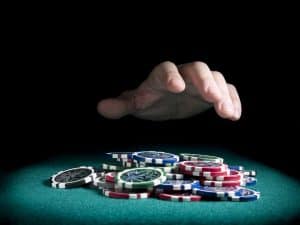How much poker is luck? A lot. But how much of poker is actually skill? And is playing poker a good thing for your brain? Is there money to be made in poker? You can even play poker for a living if you have the right mindset and discipline. In this article, we’ll examine the issue in depth. After all, who doesn’t want to win big money? We’ll also examine how much skill and luck are involved in poker, so read on!
Do you need a strategy for playing poker?
One of the most controversial questions in poker is: How much of the game of chance is luck? It seems that it’s all about luck, but in fact, researchers have proven that it’s more than luck. A recent study analyzed the interactions of over three thousand poker players and found that expert players use uncertainty to mask their intentions and avoid becoming predictable. These findings are surprising but make sense if you’ve ever played poker.
A lot of people dismiss poker as nothing more than a simple game of chance, and they are right. Although poker combines skill and luck, many people are surprised to discover that winning is incredibly difficult without a good strategy. This is because poker requires you to develop habits and routines in order to be successful in the game. If you have a poker-winning habit, you’ll likely have a better chance of achieving victory.
The question of whether or not poker is a game of skill is an important one, especially given that poker involves so many layers of strategy. Even a novice player can improve his or her skills by studying for hours. To learn these skills, he or she must either join a poker training site or take up an independent study. If you’ve never studied poker before, you may not think of it as a skill game, but it is definitely a game that requires study.
Does Poker Take Skill?
When we ask ourselves whether poker takes skill, we may think of the game as a game of chance. In reality, you must have four basic skills to become a good poker player. If you do not have these skills, you should avoid the game and stick to luck-based games instead.
Patience is an essential skill in poker. A poker player needs to practice patience, and this skill can be applied in other areas of life. The player who learns patience is more likely to be successful in poker than one who does not. It is easy to become frustrated or discouraged when playing poker. Practice patience and learn to cope with the pressures that come with the game. You may even end up winning some poker games in a row.
When studying how to play poker, it is important to remember that the game of chance involves math. Each poker hand can be analyzed based on math and probability. These calculations can help you improve your overall performance. A good example of a mathematical tool you can use in poker is the Expected Value. This will tell you the expected value for each hand and how much to bet. By following these tips, you will be on your way to success in poker!
Playing Poker for a Living?
Many people play poker for a living. While it used to have a negative stigma attached to it, society has largely accepted that professional poker players can make a decent living. Playing poker for a living can pay the bills and even save you money. There are many aspects to consider before making this type of a decision, including your own personal circumstances.
How Much of Poker Is Luck – Conclusion
It’s difficult to say how much playing poker for a living is simply luck. Most people fall somewhere between fifty and eighty percent of the time. However, this is still far lower than the statistics for professional poker players. In fact, there are no statistically significant differences between players, with most falling within half a standard deviation of their average hands. Some players, however, have better luck than others.
In poker, the house cuts from the pot, known as the rake. To make a profit, you must win more than the rake in order to break even. While luck does play a role in poker, you can gain an edge over your competition by studying the game away from the table. However, the biggest factor in poker success is playing profitable games. The larger the number of players you play with, the lower your chance of being lucky.




